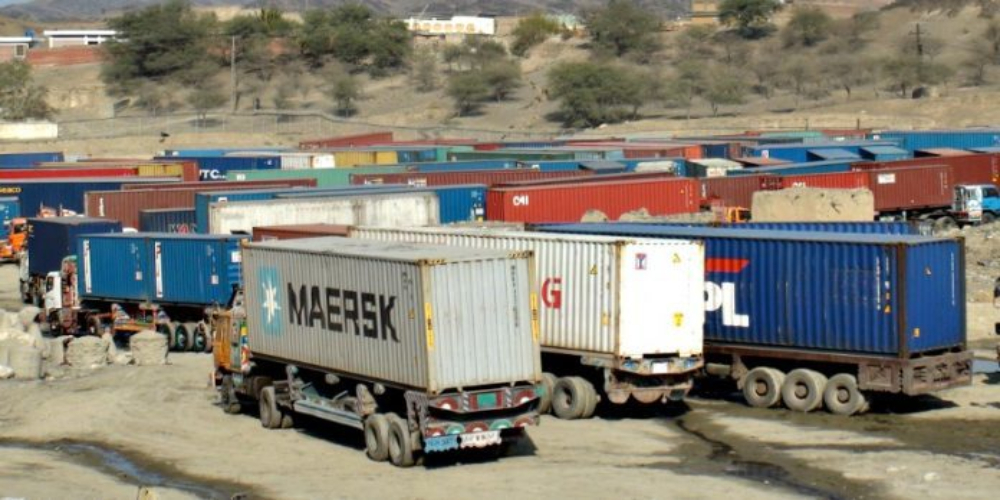
Goods Transporters have ended strike that lasted eight days after successful negotiations with the Pakistan Tehreek e Insaf Government.
According to details, government has decided to resume the implementation of axle load law.
However due to the Goods Transporters strike, it followed a loss of Rs144 billion on account.
In a meeting with Sindh Governor Imran Ismail, container transport associations announced an end to the strike.
Senior officials of the National Highway Authority, Port Qasim Authority, Karachi Port Trust, Ministry of Industries and Ministry of Communication present in the meeting.
“Authorities accepted our 10-point agenda, hence, we ended the strike,” said Karachi Goods Carrier Association General Secretary Ghulam Muhammad Afridi.
He pointed out that the Pakistan Tehreek-e-Insaf (PTI) government adamant to get the law implemented
However, the transporters cautioned beforehand that industry would not be able to comply with it as it would jack up their cost significantly.
“The government was certain to get the industry comply with the law, hence, we changed our vehicles to meet the government’s new limits,” he said.
Elaborating, he said a 48 feet long trailer, which carried 80,000 tonnes of coal, was altered to 35 feet because the longer trailer carried more weight, which could damage the highways.
He was of the view that the new 35 feet vehicles were good for roads but not for the industry as they carried less amount of merchandise (50,000 tonnes), resulting in a higher cost for exporters.
Therefore, the export and import-oriented industries pressurised the government to soften the axle load policy. However, the new arrangement was not in the transporters’ favour as they had already altered their vehicles.
“The other important issue that the highway authorities had stopped drivers possessing old hand-made licences, which they received in small cities before digitalisation took over and this was not our fault,” said Afridi.
“We have also demanded that licence-issuing centres be set up at truck stands where both the stakeholders can meet.”
He revealed that The authorities also agreed to suspend a recent decision on imposing 10 times higher penalties on highways
Read More News On
Catch all the Business News, Breaking News Event and Latest News Updates on The BOL News
Download The BOL News App to get the Daily News Update & Follow us on Google News.



